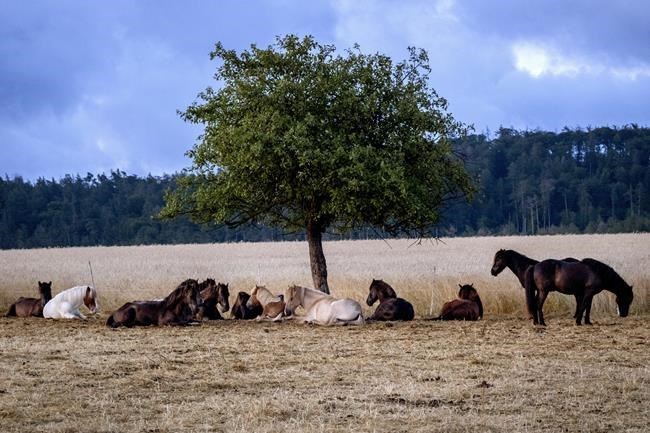BERLIN (AP) — Germans should emulate the southern European tradition of the siesta as a way to support workers during the country's frequent hot spells, according to the head of an association representing public health officers.
Germany's health minister reacted positively to the suggestion on Tuesday but said companies and employees would have to decide whether to take it up.
While Germany has avoided the kind of temperatures roasting southern Europe this week, it has sizzled at times this summer in temperatures in the mid-30s Celsius (90s Fahrenheit). The highest temperature so far this year, 38.8 degrees Celsius (101.8 degrees Fahrenheit), was recorded in Bavaria on Saturday. Since then, the heat has receded.
Still, this summer's high temperatures have been enough to prompt the head of the BVOeGD association, which represents public health officers across Germany, to propose that the country rethink its working habits during heat waves.
“We should orient ourselves when it is hot toward the working methods of southern countries. Getting up early, working productively in the morning and having a siesta at midday is a concept that we should adopt in the summer months,” Johannes Niessen told the RND newspaper group in comments published Tuesday.
“People are not as efficient in strong heat as they are otherwise,” he added. “In addition, bad sleep in the absence of cooling in the night leads to concentration problems.”
Germany has no tradition of the kind of extended afternoon breaks that are common, for example, in Spain.
Health Minister Karl Lauterbach tweeted that “siesta in the heat is certainly not a bad suggestion” but signaled that the government doesn't intend to get involved in the issue.
“Employers and employees should negotiate on that themselves," he wrote. "Certainly makes sense medically for many professions.”
The Associated Press



